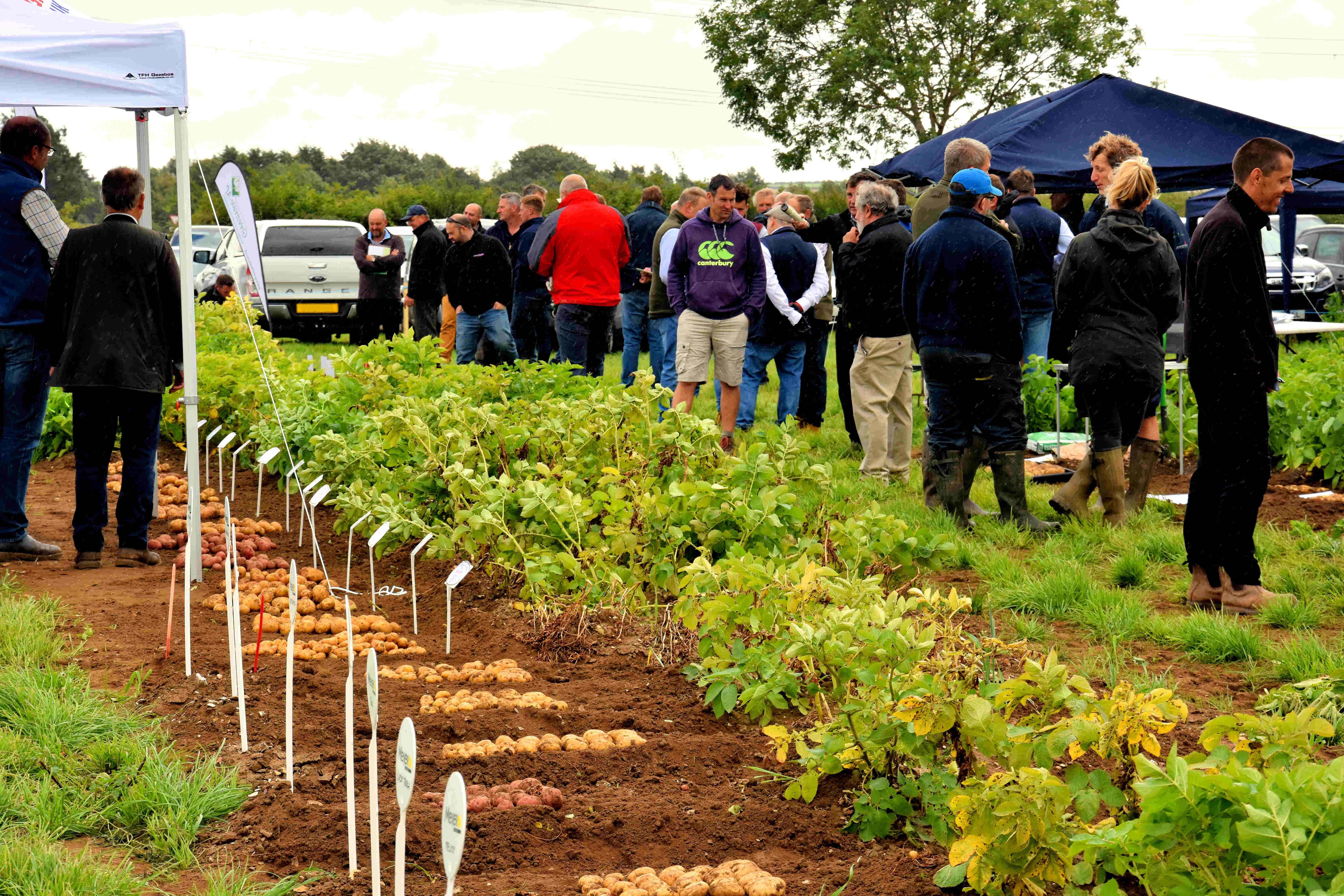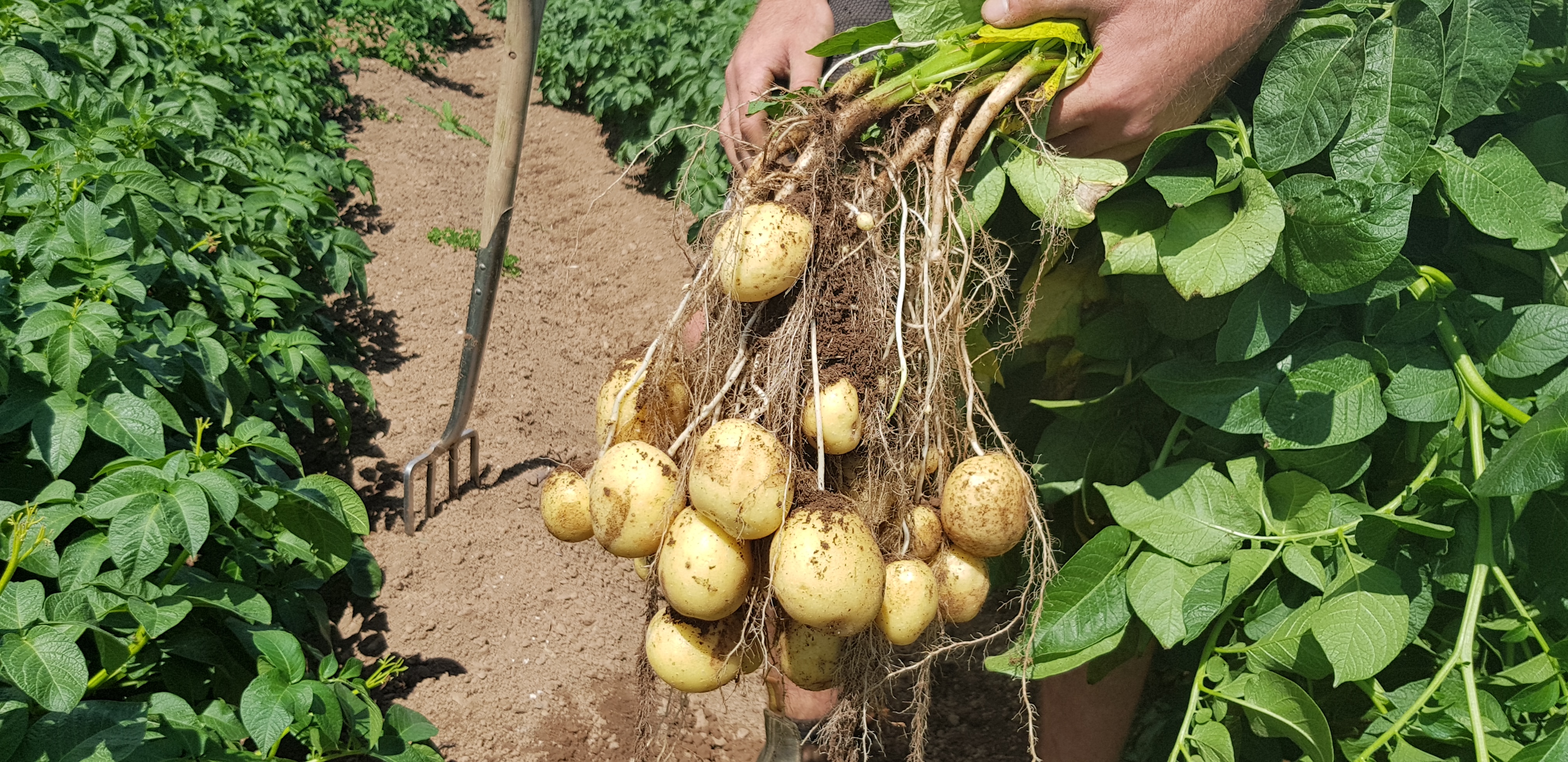Customer Experiences

Interested? Customer experience of OptiYield ...
Customer Experience
✓ OptiYield: most comprehensive soil analysis and crop-specific nutrition programme available anywhere in the World today.
✓ OptiYield: independent crop trials have consistently shown benefit of our programmes.
✓ Significant research programmes with major Universities, Research Institutes and International partners.

Emerald Research provides the highest quality soil & crop nutrition advice and products, backed by 35 years experience as Soil Scientists, Agronomists and Crop Nutrition Specialists.
We offer practical, scientific and independent “on farm” advice supported by OptiYield - the most comprehensive soil analysis and crop-specific nutrition programme available anywhere in the World today.
We work with professional farmers & agronomists optimising soil conditions and plant growth to deliver the best quality crops and maximised farm revenue.
The use of specific biostimulants, appropriate to the crop and growth stage, are highly effective in combination with appropriate foliar nutrient programmes in reducing crop stress (e.g. to heat, cold, wet), improving vigour, yield, quality, rooting and disease resistance.
Over the past 7 years our independent crop trials have consistently shown the benefit of using appropriate biostimulants in combination with nutrient programmes - but only where these are developed specifically for each crop & soil using the OptiYield system.
Emerald Research is investing in significant research programmes with major Universities, Research Institutes and other partners in developing new biostimulant compounds and continually improving the OptiYield system.
Cresswell Barn Farm
✓ "Net margin increases around 320% for maincrop and 150% for salads respectively"
✓ "Saleable yields up by around 25% on average over the past 3 years"
✓ "Soil analysis system is definitely better than others we’ve used ..."

Ian and Fiona Elliott, together with son and daughter Patrick and Tess, grow around 170ha of potatoes on the silty clay loams at Cresswell Barn Farm next to the Cleddau Estuary in Pembrokeshire.
They bought the farm in 1977, when they grew just 20ha, and embarked on a programme of expansion soon after.
“As well as growing more of the crop, it’s always been our aim to increase yields and quality, but we wanted to achieve that without overly-depending on chemistry,” says Patrick. “We wanted to aim towards greater sustainability while maintaining quality.”
The team grow a range of maincrop varieties, including Desiree, Electra, Maris Piper and several salad varieties, such as Belana, Charlotte and Gemson. All are destined for supermarkets via Haverfordwest-based Puffin Produce.
Patrick first became interested in the OptiYield system at a Puffin Produce meeting in early 2016.
OptiYield programmes were applied with crop protection products such as blight sprays to reflect commercial practice.
Plants in the treated areas had healthier canopies and a bigger root mass, he notes. This translated into higher tuber counts, producing a very significant increase in yields. “Overall maincrop yield rose by 20-25% on average,” says Patrick. “Crops exhibited greater crop vigour and disease resistance, as well as being less stressed.
“We also observed better skin quality and more even distribution of tuber size, which has helped our saleable yields go up by around 25% on average over the past 3 years.
“The effect on the bottom line was staggering, particularly last season which was very dry. We have little or no access to irrigation, and OptiYield greatly improved crop growth and maintained vigour and canopy.
“Overall, following on from previous years, for 2018 we estimate our net margin increases around 320% for maincrop and 150% for salads respectively in what was a very low rainfall, high-stress year.”
OptiYield’s unique range of biostimulants and microbials are now standard inputs across much of the Elliott’s potato area.
“All maincrop will be treated with OptiYield Complete and we’ll probably use OptiYield Bioactive on most salad crops this season,” says Patrick.
“The strength of OptiYield is the customised programmed approach tailored to our needs, and those of each variety. The soil analysis system is definitely better than others we’ve used. Rather than simple analysis values, the availability interpretation has proved to be significantly more valuable, not only for major nutrients but also for minor and micronutrients,” he comments.
“We also like the fact that Emerald is involved closely with a variety of research centres including Bangor and Aberystwyth Universities, as well as other organisations overseas, which ensures the programme is updated as necessary to reflect current thinking.”
Clock Farm, York
✓ "Net margin increases of over £600/ha"
✓ "Saleable yields up by around 12% on average"
✓ "OptiYield over substantial cropping area significantly increasing the marketable yield"
✓ "Seeing more even tubers, healthier crops and improved yields
.jpg)
A major potato producer in Yorkshire has boosted marketable yields by around 12% by adopting a more comprehensive approach to crop nutrition.
James Hopwood, who farms with his family at Clock Farm, Elvington is seeing more even tubers, healthier crops and improved yields as a result of changes implemented across both farms.
“It’s all about the science behind the soil – we’re looking at the base soil nutrition and linking it to the crop requirement, while also taking into account the market demands,” he says. “We take very detailed soil analyses and then apply a foliar fertiliser formulated specifically to meet the crops’ needs at each particular growth stage.
“It’s all about driving efficiencies,” he adds. “Attention to detail is so important – there are a lot of factors to get right in potato growing, and this is another link in the chain to get the best yields, quality, and returns possible.”
Mr Hopwood came across this new targeted approach – developed by Emerald Research - about five years ago, when he hosted trials at a previous farm. “They were run by the independent firm NDSM and we had some very good results.” Taking the extra costs into account, they resulted in an increased net profit of over £600/ha, based on average market values at the time.
Since then he has rolled it out commercially across his own 40ha farm and a 200ha farm near York. “We take soil samples in February for very detailed analysis of macro- and micro-nutrients, organic matter, pH and so on,” says Mr Hopwood. “ERL then runs them through their Optiyield programme, which also takes into consideration the variety grown and target market, to produce a bespoke foliar nutrition programme.”
The results observed from the implementation of the OptiYield nutrition programme over three years over a substantial cropping area are significantly increasing the marketable yield of the crop produced with a 12% increase in marketable yield.
Mr Hopwood has also been trying to boost soil organic matter and microbial activity, so regularly applies farmyard manure, slurry or digestate. “Too often we put fertiliser into the soil without it being made readily available by the microbes, so we’re trying to improve the moisture holding capacity and release of nutrients.”
He applies a base Omex fertiliser in suspension before ridging and planting the tubers. “Sometimes we use a liquid phosphate fertiliser around the growing zone at planting – I don’t use broadcast nitrogen any more as I don’t see the benefit – most of it runs down to the ridge base so it’s not available to the crop.”
Once the crop reaches the rosette stage, Mr Hopwood applies the first dose of foliar fertiliser, mixed in with the blight fungicide. “We give each crop about eight or 10 applications throughout the growing season, and mix the nutrients ourselves using a colour-coded system,” he says. “Every application is mixed with the blight spray, so there are no extra passes involved, unless it’s particularly dry with low blight pressure.”
Mr Hopwood is farming 243ha of potatoes and uses the OptiYield programme across about 200ha of that. “We are targeting it to the more demanding markets like chipping, as the contracts reward consistently even-sized crops. We also use it on un-irrigated ware crops to reduce the risk of stress.”
By adopting this holistic approach to crop nutrition, Mr Hopwood has noticed that the stems are considerably thicker and the plants far healthier. “Increased stem thickness means there are more nutrients being translocated through the xylem and phloem,” he says. “When the crop is under stress through drought or hot days we’ve certainly noticed that there’s less wilting in the leaves – and stress always affects the tubers in one way or another.”
However, there is a knock-on effect to having greener, healthier crops. “They do die slower, so you have to manage them correctly and desiccate accordingly.” Tailoring the crop nutrition isn’t a silver bullet, he adds. “It’s all about attention to detail and taking an holistic approach. But we’ve done the trials and know it works, and are making solid commercial decisions on where to use it. I’d rather produce an 18t crop at the right size and the right quality than 20t and have 30% wastage.”
Mr. Hopwood says that, “Future cropping will focus on the detailed crop nutrition that OptiYield provides in order to continue to produce crops in a variety of situations with perceived lower risk and continually higher returns.”
Kincraigie Growers
✓ "Net margin increases around £500 per hectare"
✓ "Fully committed to using OptiYield across all our cropping for the 2019 season"
✓ "Healthier canopies, larger root masses, more tubers with a more even size distribution."

Trials carried out by Kincraigie Growers, a 150ha seed potato-growing operation based in central Perthshire, have clearly demonstrated the potential of OptiYield foliar treatments.
Director Andrew Lorimer has over 30 years of operational experience in managing seed for ware and processing and trading in overseas markets.
Kincraigie Growers supplies top quality, limited-generation seed for a range of varieties that are tailored to specific needs and supplied direct to end users.
As well as producing higher yields of healthy vigorous seed and improving quality, OptiYield also fits well with the business’s philosophy to move towards greater sustainability and becoming less reliant on chemistry.
“It’s very clear that farmers will need to adapt rapidly to diminishing agrochemical availability as well as climate swings and changes,” says Mr Lorimer.
“Crops will need to be robust, so understanding a plant’s needs using customised programmes using products designed to promote both crop and soil health has to be the way forward.”
Kincraigie Growers used the OptiYield Core programme commercially in 2018. Treated crops exhibited healthier canopies, larger root masses and more tubers with a more even size distribution. Mr Lorimer identified typical yield increases of 2.5t/ha, equating to an additional £500/ha profit and a significant increase in tuber numbers. In one independently verified test dig a 9% increase was recorded.
“Crops certainly looked better than expected given there was no irrigation available. As well as greener canopies we saw increased stem numbers and reduced crop stress compared to our standard treatment.”
The aim this season is to conduct commercial trials on other sites and with other growers to assess performance across a wider geographical spread to take in a greater range of crop challenges.
And, says Mr Lorimer: “As Kincraigie Growers we will be fully committed to using OptiYield across all our cropping for the 2019 season.”